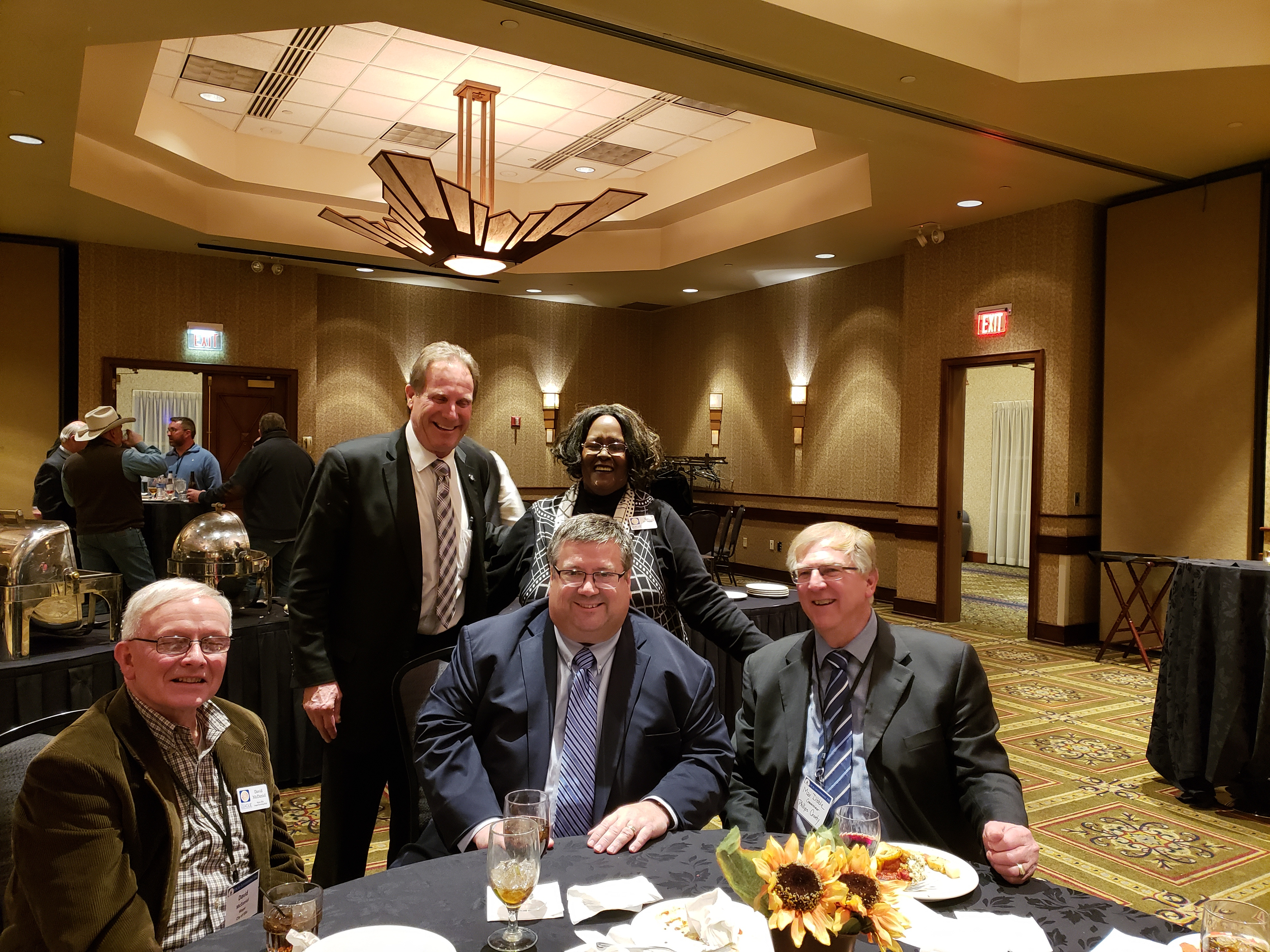
Hello from Topeka! This past week saw mostly bill introductions and the beginning of committee work. The Higher Education Budget committee met for the first time and received an overview of education in Kansas and setting the course for the session work. It will be another couple of weeks before we are presented with the baseline numbers and begin hearing from our higher education institutions.
In this report I wanted to share some of the things going on in other committees: Mental Health Issues in Schools - On Thursday, the Kansas State Board of Education Report on Mental Health Issues in Schools and similar information on children’s mental health were presented to the House Education Committee. The board’s report identifies that 20% of children and youth have an identified need for mental health services, but only one-third of those children have received services. In addition, for those children who did receive services, more than 70% received services from their school. The presentation also stressed the need to prevent suicide, and the board’s prime recommendation included suicide awareness and prevention training. Specifically, the board recommended required staff training on signs of abuse, neglect, and sexual abuse, and would also like to see school districts revisit or revise policies related to mandating reporting of signs of abuse.
Essential Federal Employees in Kansas- On Friday, Representative Adam Smith from Weskan introduced a bill in the Rural Revitalization Committee to address concerns of Federal employees furloughed in Kansas due to the government shutdown. Some employees are working without pay and are not allowed to collect unemployment. Friday marked the second pay period these employees have been going to work without a paycheck. Under Representative Smith’s proposal, these employees would be able to collect unemployment and then be required to pay it back once an employee receives backpay from the Federal government. While this problem stems from D.C., we believe it is important for Kansans to take care of our own in the meantime.
Itemized Deduction Briefing- Also on Thursday, the tax committee heard from The Department of Revenue, the Kansas Society of CPAs, and the Kansas Realtors Association. Due to recent changes in federal law, Kansas taxpayers must take the standard deduction on their state income tax return if they take the standard deduction on federal return. In the same token, Kansans cannot itemize on their state returns if they do not itemize on their federal return. The federal standard deduction was nearly doubled, increasing from: 1) Federal Standard Deduction 2) Tax Year 2017: $6,350 for single filers, $12,700 married filing jointly 3) Tax Year 2018: $12,000 for single filers, $24,000 married filing jointly. 4) Kansas Standard Deduction and 5) $3,000 for single filers, $7,500 or married filing jointly. This eliminates the opportunity for Kansans with itemized deductions below the federal standard deduction, to itemize on their state return. Amending the state tax code, or decoupling from the federal tax code, will allow taxpayers the freedom to itemize or take the standard deduction on their state returns regardless of which route they take when filing their federal return.
Tax Foundation Testifies about Kansas Tax Climate – Nicole Keading, Director of Federal and Special Projects for the Tax Foundation, presented to the House Taxation Committee. She gave an overview of Kansas tax rates, state business tax climate index, the Wayfair decision, and conformity. She noted that literature shows that some taxes burden economic growth more than others. Those are gross receipts taxes, corporate income taxes, and individual income taxes. In speaking about state tax policy, she divided her discussion into four large categories: tax rates; tax collections; tax burdens; and tax structure. In looking at tax rates, Kansas is in the middle of rankings on individual income tax rate for 2018 with a 5.7% rate. Individual income tax rates for neighboring states are: Colorado (4.63%), Nebraska (6.84%), Missouri (5.9%), and Oklahoma (5.0%). Kansas ranks higher than other states on the corporate tax rate at 7.0%. Neighboring states: CO (4.63%), NE (7.81%), MO (6.25%), and OK (6.0%). On sales tax, Kansas has the 8th highest combined sales tax rate (state/local), with 8.68%. Neighboring state rates are: CO (7.52%), NE (6.89%, no tax on food), MO (8.08%), and OK (8.93%). The Tax Foundation also calculates the tax burden for states. Tax burden reflects the portion of income that goes to taxes. The Tax Foundation found that Kansas’ burden is 9.5, which is the 23rd highest tax burden in the nation.
This past week there were several folks from the district in Topeka: Phillips County Commissioner Max Dibble; Phillipsburg City Council Chair Mike James; Norton County Commissioner Bud Posson; Stockton Mayor Kim Thomas; Ellis Mayor Dave McDaniel; Phillips County Register of Deeds Robert Keessee and several folks from our community hospitals, but due to the weather we were not able to catch up. I had a great time Sunday night at the Hill City Area Chamber of Commerce Banquet, Diana Crouch and crew always put on a great event. Congratulations to the award winners.
If you come to Topeka during the session, my office is in Room: 149-S. My phone number is (785) 296- 7463 and email is: ken.rahjes@house.ks.gov and you can always try my cell number is (785) 302-8416.
I look forward to seeing you around the 110th District. It is my honor to by your representative.